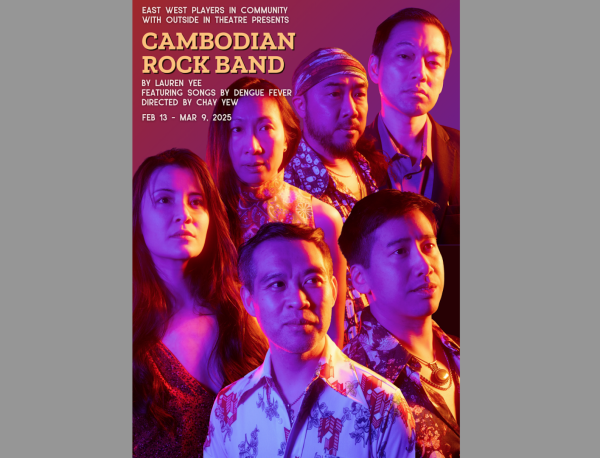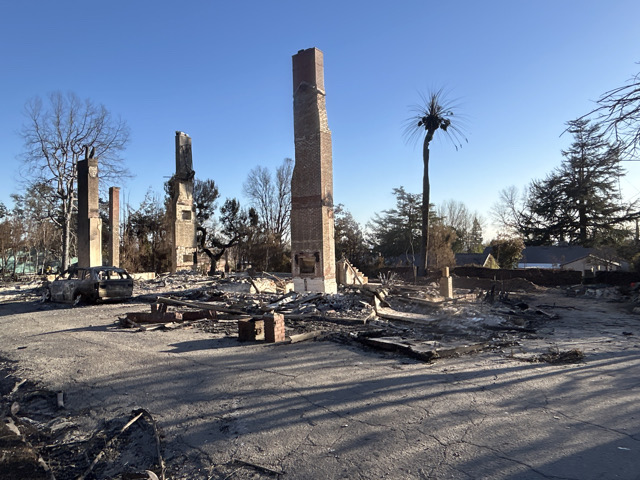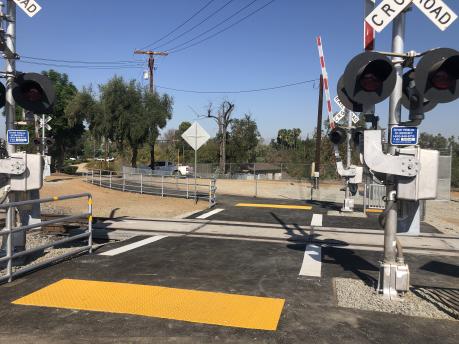About 10 years ago, Lauren Yee watched an LA Band called Dengue Fever at an outdoor music festival. That singular event inspired her to write a play called “Cambodian Rock Band” and it debuted in 2018 at South Coast Repertory in Orange County.
“Cambodian Rock Band” has since been staged in various iterations at different venues. The show makes its return to Southern California from Feb. 13 to March 9 in the David Henry Hwang Theatre at East West Players in Los Angeles — not too far from Long Beach, which is home to the largest Cambodian population outside of Cambodia.
This part-play, part-rock concert tells the powerful story of a Khmer Rouge survivor returning to Cambodia after three decades. As his daughter prepares to prosecute one of the regime’s most notorious war criminals, they must confront their shared history through the healing power of music.
East West Player’s production marks director Chay Yew’s 13th collaboration with the theater, bringing his signature vision to an extraordinary ensemble. He directed the world premiere of “Cambodian Rock Band” at South Coast Repertory and the off-Broadway run at Signature Theatre.
The cast, many of whom were part of the original world-premiere production, includes Kelsey Angel Baehrens as Neary/Sothea, Abraham Kim as Rom/Journalist, Tim Liu as Ted/Leng, Jane Lui as Pou/Guard, Joe Ngo as Chum and Daisuke Tsuji as Duch.
Speaking by phone, New York-based playwright Lauren Yee talks about the genesis of “Cambodian Rock Band,” what compels her to write, and her work process.
“I fell in love with Dengue Fever’s music — it was infectious, and fun and joyful,” begins Yee. “They play their own take on music inspired by the Cambodian rock scene of the ’60s and ’70s. So I went on a deep dive into their musical influences and learned about those musicians, a lot of whom were killed or died during the Khmer Rouge’s takeover of Cambodia in the early ’70s. It was shocking to me that not only the people, but this whole branch of musical history had been under attack. I thought, ‘there’s a play somewhere in here and I want to write it.’”
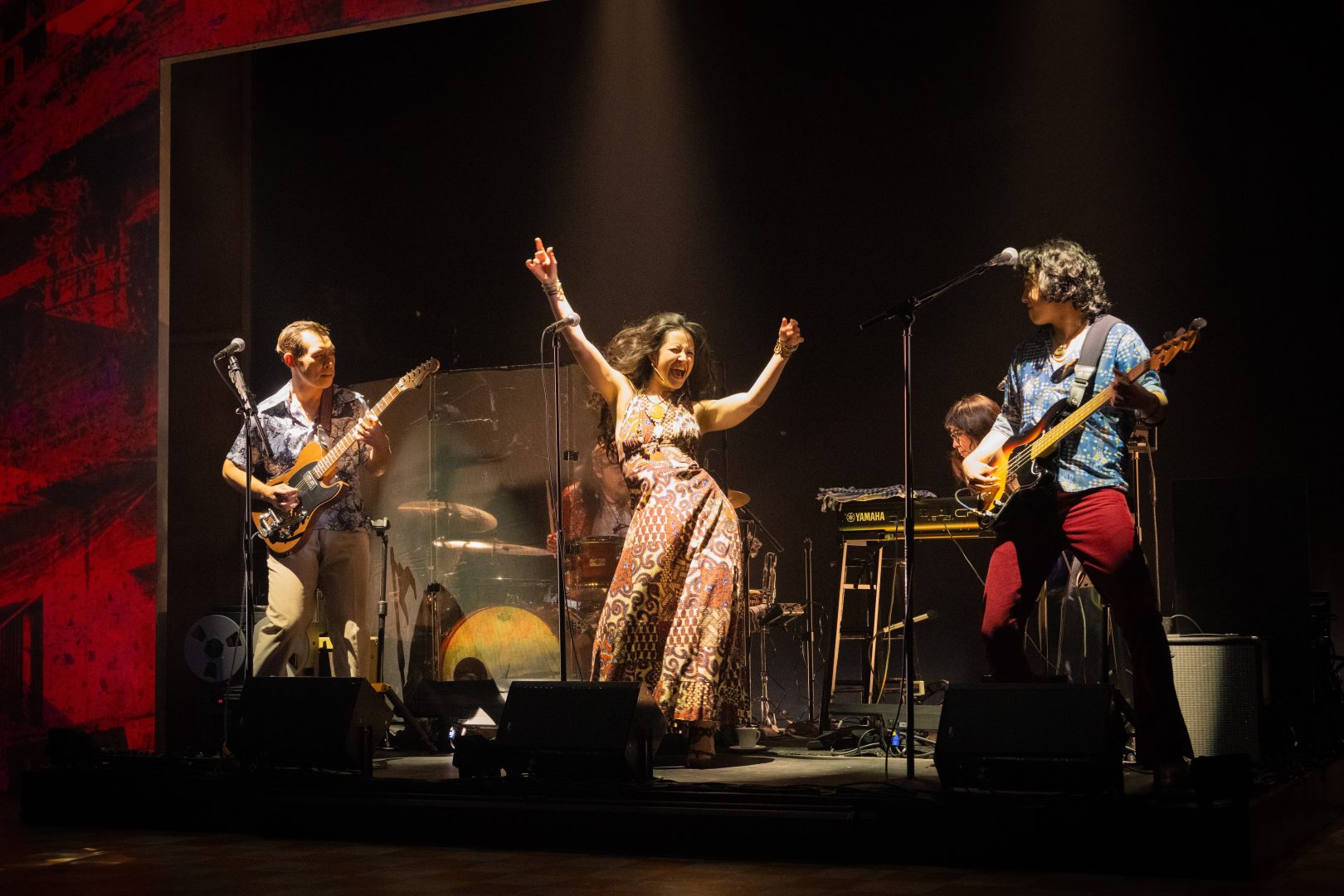
For a long time, Yee just contemplated about what that play might be. Then in 2015 she was commissioned by South Coast Repertory to write a play for them and she started working on what was to become “Cambodian Rock Band.”
Yee relates, “In the development process I brought on an actor named Joe Ngo, who I knew from Seattle, and it just so happened that his parents were survivors of the Khmer Rouge. And he played the electric guitar! It went from being a play about music to a play where the actors should play their instrument. He has just been the heart and soul of the show. He premiered the play at South Coast in 2018 and he’s basically been performing the role on and off for the past seven years. His involvement with the play is turning ten this year and he’s coming back to his home base of Southern California to perform the play at East West Players.”
“For a playwright, it’s a dream to have actors who have such a long relationship with a single work,” enthuses Yee. “Usually theaters bring in the actors for a month of rehearsals and a month of performances, and the actor may never touch the play again. But to be able to have these actors come back, like Daisuke Tsuji, Jane Lui, Abraham Kim, who were in the original cast at South Coast and two other actors — Kelsey Angel Baehrens and Tim Liu — join the show having done previous iterations of it, is a beautiful homecoming and something very rare in theatre.”
A Chinese American, Yee has written several Asian-centric comedies and dramas. One of her earlier plays was a comedy called “Ching Chong Chinaman” that featured the Wongs, a Chinese American family, in which she skewered every cliché about Asian American identity. More recently, she wrote a drama titled “The Great Leap,” about an American basketball team that traveled to Beijing in 1989 that explored the intersection of identity and politics and the cultural and political risks of speaking out.
I ask if she writes Asian plays because she’s Asian or because she wants to see more Asian representation in theatre, Yee responds, “I think it’s both. First and foremost, I’m a human who loves theatre so I think my plays represent a wide range of topics, ideas, and characters. But one thing I can offer the theatre world that I’m very proud of, is that I write great roles for Asian American performers where they get to play basketball or shred on an electric guitar and do really cool things and play the villain.”
“Sometimes parts of the plays I write reflect my own lived experience and family history,” continues Yee. “And also, over the years, I find I’ve been really interested in unpacking Communism in Asia in the 20th century and its collision with Western culture. It sounds very dry, but to me it’s about ‘What is it like when something seemingly Western as basketball collides with China?’ ‘What is it like when you’re living in a world that has outlawed Western music and then you hear electric guitar?’ as in ‘Cambodian Rock Band.’ I find those clashes incredibly interesting.”
And Yee doesn’t shirk from sensitive topics as she did with “Ching Chong Chinaman.”
She explains, “’Ching Chong Chinaman,’ which I wrote almost 20 years ago, is very close to my own family experience. It shines a light on how others thought of Chinese Americans and Asian Americans at a time when it wasn’t on people’s radar. Stop AAPI Hate was not a thing yet. We were just coming off seeing Asian Americans as this model minority and no one was talking about how we’re viewed and what language is being used against us.”
“For me, that was the right title for the play because I think it’s important that we don’t ignore the things that are traumatic — like charged language,” Yee adds. “We shouldn’t pretend that everything’s okay; we have to confront them.”
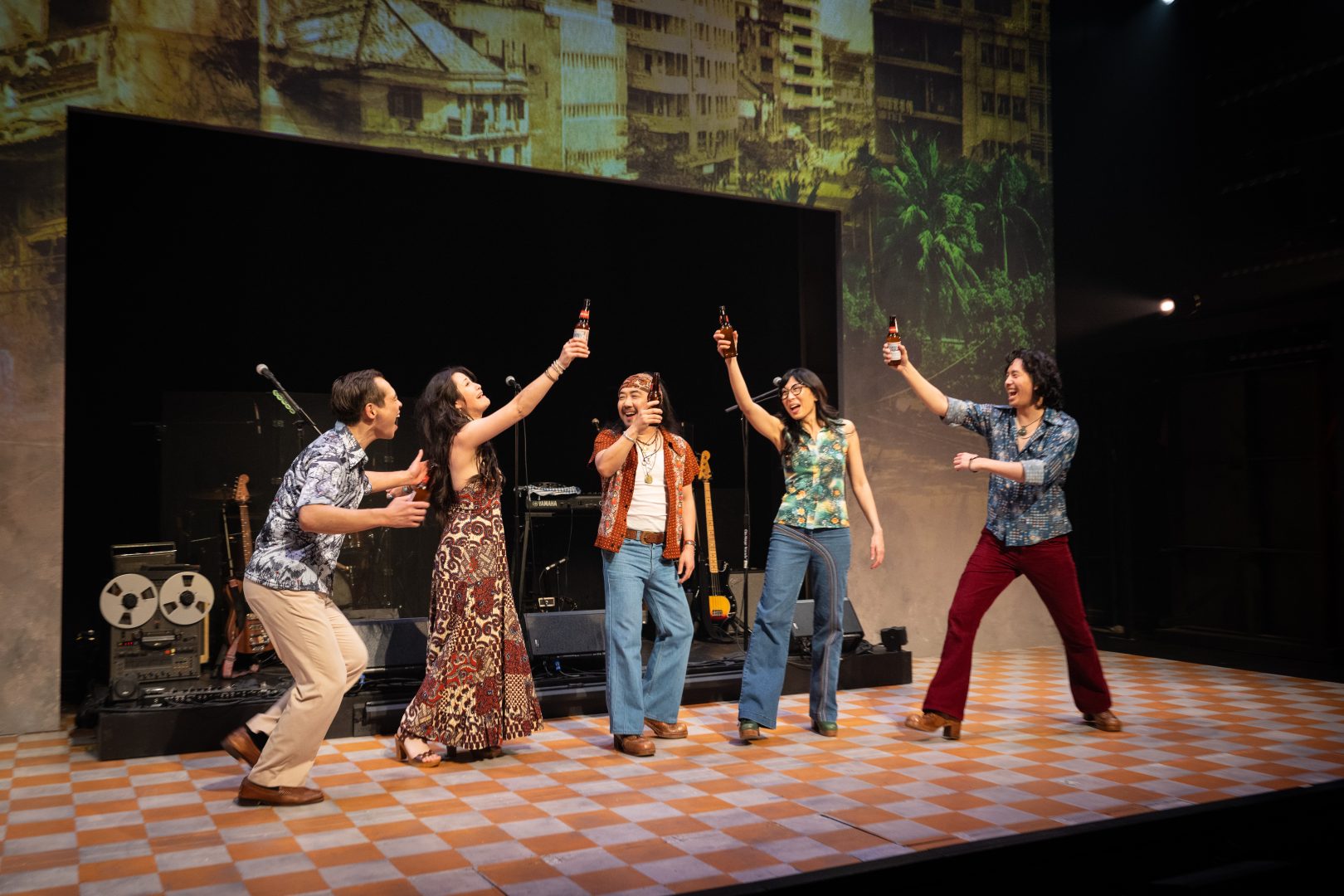
According to Yee, she doesn’t have a fixed idea if a play she’s writing is going to be a comedy or a drama.
“Each play is like a kid: the child is born and you don’t know their personality, what they’re going to be like,” enlightens Yee. “But as you begin to spend time with them you see how they speak and communicate. In all of my plays there’s the vein of humor that runs throughout; there’s something deeply, painfully funny in them. I think drama and comedy exist in that same human experience. I really can’t separate the two.”
While most of Yee’s plays have been universally praised by critics, she’s a little shy when it comes to reviews.
“I can write a play and two different people can have totally different opinions about what they think of it or how the play should have gone,” Yee says. “I’m most invested in listening to the voices that are closest to the creative process.”
As for the audience takeaway, Yee observes, “I’m really excited for whatever the audience takes away. I think it’s going to vary based on who you are and your experiences with the music and its history. For those new to this history, I want to incite you to dig deeper and learn more; to think about the power of art, and the threat of oppressive regime, and what can happen when things change.
“And for people who are closer to the material, who know the music or maybe are familiar in a personal way with the event, I hope you’re able to celebrate that music, and reflect on your own history, and share some of your own experiences with people you love. What I found with this play that has been so moving is to hear people — especially from the Cambodian community — say ‘I went through that, or I didn’t experience exactly that, but I’m going to tell my kids about what happened to me.’”
In parting, Yee declares, “I’m so excited to be part of East West Players’ 60th anniversary. Throughout the 20th and 21st century, they have been a leader in championing AAPI voices and it’s really an honor to be part of Lily Tung Crystal’s inaugural season. I think ‘Cambodian Rock Band’ is a joyride — the music is electric, the performers are amazing. It’s a show that lifts you up on your feet despite it all.”
Those who have been fortunate enough to see Yee’s plays will tell you that she creates intensely heartbreaking plays that bring the audience to tears and hysterically funny ones that have people laughing their heads off. “Cambodian Rock Band” is another one of her works that’s certain to elicit a strong emotional reaction.

